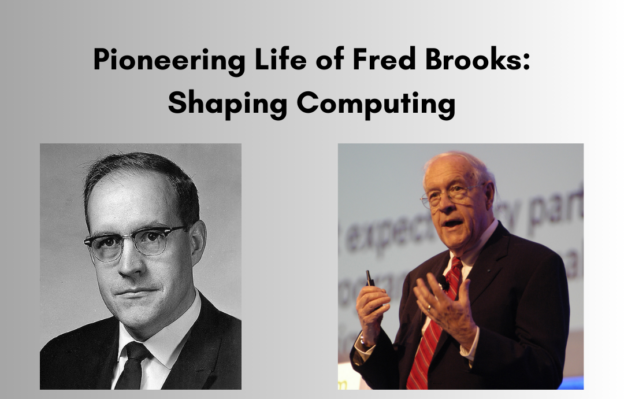Dr. Frederick P. Brooks Jr., often referred to as Fred Brooks, is a seminal figure in the realms of computer science and software engineering. His contributions stretch from academic advancements to practical insights in software project management. This article delves into the life, achievements, and enduring legacy of Fred Brooks, whose career has significantly influenced the computing discipline.
Contents
Early Life and Education
Born in 1931 in North Carolina, Fred Brooks showcased an early inclination towards technology. He pursued his undergraduate studies at Duke University, graduating in Physics. His academic journey continued at Harvard University, where he completed his Ph.D. in Applied Mathematics. During his time at Harvard, he also worked with the pioneer of computer science, Howard Aiken, which shaped his future career in computing.
IBM and System/360
Brooks’ professional journey commenced at IBM, where he worked from 1956 to 1965. He played a pivotal role in the development of IBM’s System/360 family of computers and the OS/360 software support package. The System/360 is revered for its long-term impact on the industry, establishing the paradigm of a family of computers with compatible software and peripherals.
Academic Tenure
Post his tenure at IBM, Brooks transitioned to academia, joining the University of North Carolina at Chapel Hill (UNC). Over the decades at UNC, he profoundly impacted the computer science department, nurturing it to become a well-recognized entity in the academic sphere. His research spanned various areas, including computer architecture, three-dimensional computer graphics, and virtual reality.
“The Mythical Man-Month”
In 1975, Brooks published “The Mythical Man-Month”, a book encapsulating his experiences and insights from the System/360 project. The book delved into the human aspects of software engineering and debunked the simplistic assumption of linear time and manpower correlation in software projects. It introduced concepts and phrases such as “build one to throw away” and “no silver bullet” which remain part of the software engineering lexicon today.
No Silver Bullet
Brooks further extended his discourse in software engineering through his paper, “No Silver Bullet”, wherein he argued that there isn’t a single magical solution to significantly enhance productivity in software development. This paper, like his earlier book, continues to be a reference point in discussions surrounding software engineering complexities.
Legacy and Awards
Fred Brooks’ career is adorned with numerous accolades acknowledging his pioneering contributions. He was awarded the National Medal of Technology and Innovation in 1985 and the Turing Award in 1999. His enduring legacy continues to guide contemporary discourse in software engineering and project management.
Conclusion
Fred Brooks’ journey from the hallways of IBM to the academic realm of UNC embodies a profound impact on the computing industry and academia alike. His insights, encapsulated in “The Mythical Man-Month” and “No Silver Bullet”, among other works, continue to shape the understanding and practices in software development. As a scholar, practitioner, and thought leader, Fred Brooks’ illustrious career serves as a beacon of insight and inspiration in the evolving domain of computer science and software engineering.
